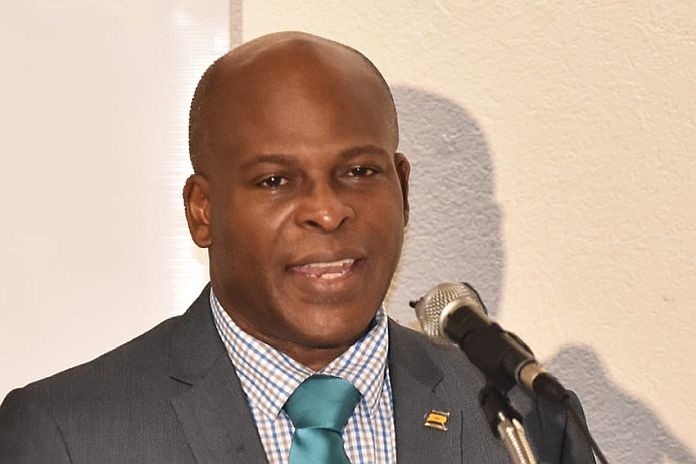By BGIS
BRIDGETOWN, Barbados – Barbados has once again called on the European Union (EU) to put a halt to its persistent black-and-grey listing of CARICOM countries as non-cooperative tax jurisdictions.
The appeal on behalf of Barbados and other CARICOM and ACP countries came recently from the island’s Representative Edmund Hinkson, during his attendance at the 61st Organisation of African Caribbean and Pacific (OACPS) Parliamentary Assembly and the 42nd ACP-EU Joint Parliamentary Assembly in Maputo, Mozambique.
The two sessions were convened between October 25 and November 2.
Hinkson presented for consideration before the ACP’s Committee on Economic Development, Finance and Trade, the draft report on the EU’s listing of non-cooperative tax jurisdictions and its listing of third countries regarding anti-money laundering and counter-terrorism financing.
The draft was agreed upon by the EU’s co-rapporteur and member of the European parliament, Alessandra Basso, and Hinkson as co-rapporteur on the topic on the ACP’s behalf.
He also presented on behalf of the OACP, the position of these countries before the joint meeting with the European Union of the Committee on Economic Development, Finance and Trade, as co-rapporteur on the issue of the EU’s listings of third states, the majority of which are ACP member states.
Speaking on his return from the high-level meetings, he noted that negotiations and further work was required on this matter. He said: “The EU has so far refused to budge on what it perceives as its right to continue its unilateral black and greylisting of countries in the CARICOM, Africa and Pacific regions as non-compliant states on ATM/CFT issues, even after they have come off the lists of the Financial Action Task Force (FAFT) and the Organisation of Economic Cooperation and Development (OECD) and even although some EU member states are seriously in breach of their own standards but are not so listed.”
He further explained that while ACP States totally agree with the EU countries that matters of tax avoidance, money laundering and terrorist financing are of paramount concern globally, not least since it is estimated that as much as US $800,000.00 are laundered annually, the ACP nations require greater structured dialogue and appropriate consultations with and wider technical assistance for capacity building from the EU to address these issues.
He noted that this is the preferred pathway rather than what currently obtains where the EU places some of our member states, including Barbados, on continuous black and grey lists on the notion that we facilitate tax evasion by external companies through our financial services and international business sectors.
“Member States called on the EU to remove the affected countries from these lists once they have come off the lists of the OECD and FAFT and to only use these listings as a last resort to address any strategic deficiencies within the legislative or administrative framework of our countries,” he disclosed.
According to Hinkson, Barbados was also instrumental in crafting the Resolution, which was carried, to acknowledge the importance of the gradual phasing out of and transition from fossil fuels to renewable energy.
The joint assembly also debated topics on Ensuring Market Access for OACPS commodity-producing countries through enhancing sustainable consumption and production patterns; A New Framework to Address Biodiversity Crisis: Leveraging ACP-EU Partnership in shaping the new framework to halt the loss of biodiversity and to promote its sustainable use and conservation in the wake of COP 15; The Consequences of the Russian war in Ukraine on food supplies in OACPS countries and beyond; Global Challenges of Climate Change Cooperation for Adaptation and Mitigation in the Wake of COP 27, and A Mechanism for Stakeholders’ consultation and engagement under the Post-Cotonou Agreement.
The next meetings of the OACPS parliamentary assembly and the ACP-EU joint parliamentary assembly are expected to be held in Sweden in February next year.





